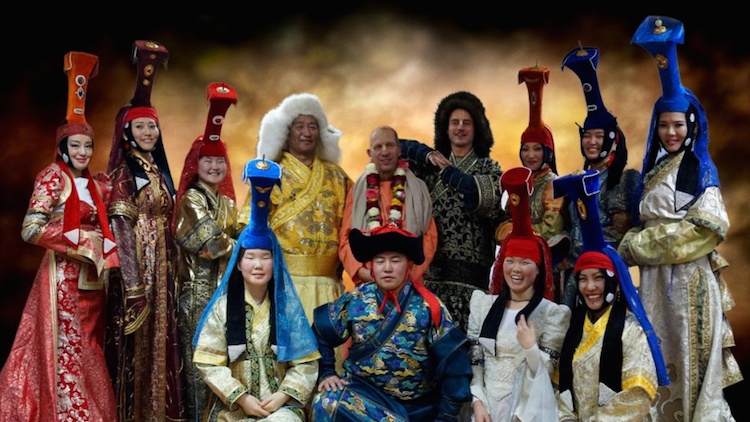Mongolian Krishna Mandir Receives Official Religious Status, New Temple on the Way
By Madhava Smullen | Янв 01, 1901

The names of Krishna are truly being heard in every town and village. This month, after a long waiting period, devotees’ “Krishna Mandir” organization just outside the capital of Mongolia, Ulan Bator, was given official religious status by the government.
According to leader Bhaktivaibhava Swami, that means a beautiful new temple is on the way.
Krishna consciousness first came to Mongolia in 1999 when Lakshmi Narayana, a senior devotee from East Siberia, began holding public programs there.

The Mongolian devotees gather at a recent temple program
Bhaktivaibhava Swami followed, visiting annually, and in 2004, Mongolian devotees began holding Sunday programs and other Vaishnava festivals in a traditional yurt, often packing it up and moving locations in true nomadic style.
Over twenty BBT books and many of Srila Prabhupada’s lectures were translated into Mongolian, and a Food For Life program was launched.
In late 2012, devotees moved into an old building on land donated by Bhaktivabhava Swami three kilometers outside of Ulan Bator. The building included a large altar room, kitchen, and celibate monks’ ashram.

The old temple building
But with the small congregation growing (there are now thirty devotees in Mongolia), and the old building falling into dilapidation, devotees needed to build a new temple.
Their first step was to get their “Krishna Mandir” officially registered with the Mongolian government as a religious organization. Outreach activities stalled for the past year until the documents came through this month.
Now, with official religious status under their belt, the next step for devotees will be to get permission to build a temple, which according to Bhaktivaibhavi Swami will be relatively uncomplicated at this stage.

Balakananda Das worships the Deities
The projected major Vedic temple will cost around $800,000 and include living quarters for resident devotees, a Govinda’s restaurant, gurukula (school), educational center, and souvenir shop.
Already, a professional design company and Vastu specialists from Germany have begun work on the project. A local well-wisher has donated the funds required for the first floor, while Gopal Krishna Goswami and other supporters from India have also contributed.
“The major portion of the construction funds still need to be raised, though,” says Bhaktivaibhava Swami.

Bhakta Priya Das and Gopal Nandini Dasi are married at the first Vedic wedding ceremony in Mongolia
It’s likely that this will be a challenge for the local congregation in Mongolia, a very poor country where a large percent of the population continues to live the traditional nomadic lifestyle. So he hopes to receive support from well-wishers around the world.
Ananda-prada Dasi, Krishna Mandir’s curator of development, is excited about being able to get started on the new temple construction, and seems sure that the latest developments will mean a lot of growth for the devotee community in Mongolia.
“We all feel very happy about getting this registration finally, and are eager to continue book distribution, prasad distribution and other activities which can bring benefit to the people,” she says. “And now we have devotees who live in other cities also, so we want to develop preaching activity all over Mongolia, not only in Ulan Bator.”

Regional Secretary Indranuja Das and Curator of Development Ananda Prada Dasi
“All the signs for this are encouraging,” adds Bhaktivaibhava Swami. “Especially the Mongolian people’s vital interest in the philosophy and lifestyle of Krishna consciousness. And we strongly believe that the construction of a Vedic temple will be of great service to the citizens of Mongolia.”















